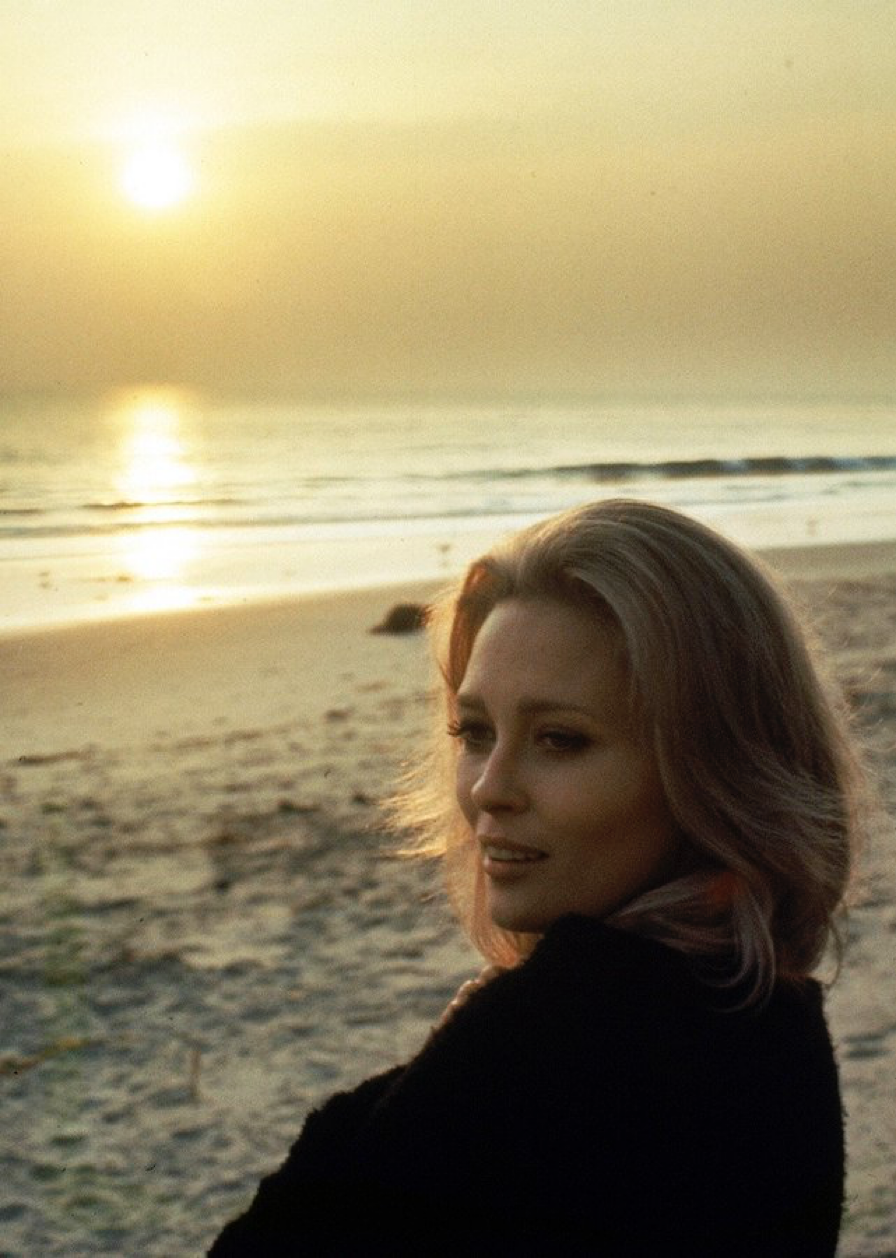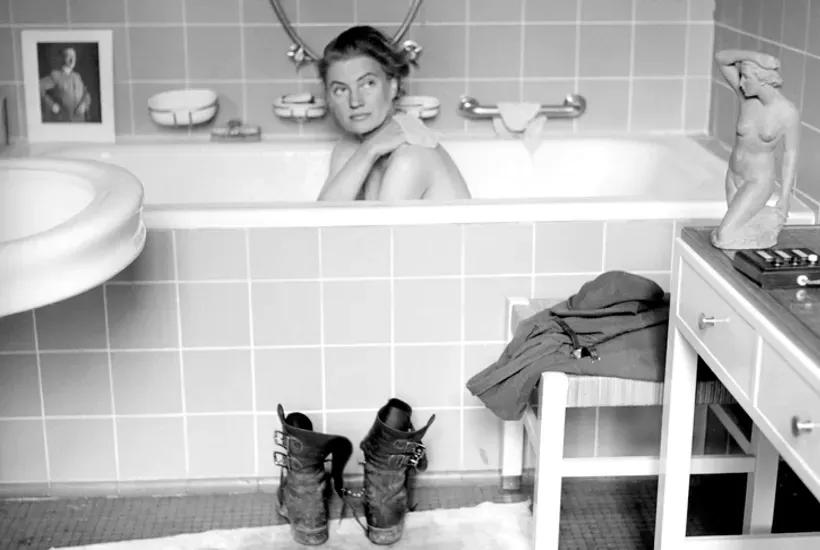Workflow: From Inception to Outline
How I generate, research and outline ideas, a frankly exhaustive guide.
By popular demand (one person asked for it and I think it might have been sarcastic), I present a guide to how I start projects and go from the inception of an idea, through research and into outlining.
If you suspect this might be tedious, then it is certainly not for you and you should feel very free to look at this picture of Steve McQueen in a kitchen and then move this mail to the trash...

Anyone still here? OK, let's go...
I recently read Tiago Forte's "Building a Second Brain", which is all about the currently hot topic of PKM, which, for those of you who have lives, stands for Personal Knowledge Management. A PKM system, we are encouraged to believe, is an essential tool for creatives and knowledge workers alike and apparently we don't know how we ever got by without one.
I do actually have some sympathy with the idea. A place to horde ideas and make connections between them is useful. The fact that PKMs seem to be the Holy Grail for the kind of people who read books with a highlighter in one hand is by the by.
What Forte's book is particularly strong on, is how to organise information. And I have taken one major leaf out of his book; he believes that Projects should be the primary cataloguing variable for organisation. (Forte created something called the PARA method, whereby everything in your digital world is filed as either a Project, an Area, a Resource or in the Archive). What this means in practice is that where, for example, you might have a folder full of articles on history, if you're working on a project that involves history, you should MOVE the relevant information out of the History folder and into the folder for that project. ie You gather all the info for a given project together, you don't leave it listed under it's broader category.
So if you're writing something about the Second World War, all of your info goes into the WW2 project. And when you're done with it, you archive the project, knowing that it's there for future reference. This seems incredibly simple, but I have spent years with folders on the occult, for example, which I have to dig through every time I'm looking for something and then have to remember if I've used that piece of information before. If it was already in a file marked Lovecraft Investigations,, it would be easier both to find and to determine its usability. Obviously cross-tagging everything by broad subject aids with the search.
Are you starting to flag? Me too. Here's Faye Dunaway on a beach...

Alright, so let's talk about process...
The first thing we have is a random idea. Say, for example, that it has occurred to me that I want to write a TV series about a butler. (I don't, do not expect a butler show from me anytime soon, but it's a useable example). I'm out and about and I just have my phone on me, so I'm going to open Drafts, which is the most frictionless app anyone has yet invented for just getting something recorded. In Drafts, I will write "A TV show about a butler", and then I will go about my day.
When I get back to a computer, I'll open up Drafts, see the butler note and assess whether this was a good idea or not. If I like it, I can use one of a number of shortcuts within Drafts to send that note somewhere else.
The most likely first stop for the note is Obsidian, which is the app I use more than pretty much anything else. Obsidian has my daily journal, all my ideas, blog posts, newsletters etc. I'm writing this in Obsidian right now. I'm not going to bore you with all the things Obsidian can do, because the internet is full of people talking endlessly about it. And I'm not going to pretend that the learning curve isn't steep, it really is. But I've been using Obsidian for years and it just feels like an extension of my brain at this stage.
The butler idea becomes a note in Obsidian and I will noodle on it, fleshing it out a little bit. At a certain point, I will probably drop the note into Napkin, which is a much newer app. Napkin takes short notes and finds connections between them. It is, essentially, a serendipity engine.
I'm dropping the butler note into Napkin now because there is every chance that I will abandon this idea at some point and then forget all about it. That means, at some time in the future, while I'm making a note about something completely different in Napkin, the app will make a tenuous connection and drag the butler idea back out of the mists of time for me, and maybe it will get a new life as a part of something else.
Serendipity is a huge part of how I come up with ideas, and so an app that aids with that is invaluable. But Napkin is not yet part of the primary workflow. It's an adjunct; something to copy ideas into so that it might resurface as part of something else in the future.
Anyway, back to this butler... There is enough flesh on the bones of this idea now for me to believe that it might have legs (it really doesn't, not doing a show about a butler).
At the point that this has gone from an idea to an actual project, I will open a "Butler" folder in Dropbox, where I keep everything, and in DEVONthink and Raindrop.
DEVONthink I have written about extensively before. It's a file manager that can cope with any type of document/link etc that you can throw at it and it also has a degree of serendipity built in - select a file or some text and DEVONthink will show you other files in the database that might relate (I have spent years adding research documents to DEVONthink so there's a wealth of stuff in there now). So I'll drop my Butler note into DEVONthink and then gather up any existing documents and links I might have that could usefully relate and, per Tiago Forte's method, I will move them into the Butler project folder .
Raindrop is a bookmark manager that is slick and easy to use and works across all devices. It's got a lot less friction than DEVONthink when it comes to importing data, so I will use that while I'm doing online research, to scoop up more butler-related info.
At a certain point, I will then sift through what I have in Raindrop and add all the relevant pieces to the DEVONthink Butler folder. (I will also have run a search in Raindrop for butler links that I might have previously dropped in there, although that search will be much more targeted because Raindrop doesn't have the AI engine to find "maybe" connections - it can only search for files with the word "butler" in).
During this process, I will also run a comb through my MyMind database, which I mostly use for storing images (although it works fine with text and links as well). I love MyMind more than almost any app I have and it will usually surface some pictures that are relevant or inspiring in some way.
So now I have a folder full of information on butlers (why did I pick this example?) and I have my original note. I'll turn all the web documents into PDFs and shift them onto my Remarkable tablet so that I can read through them and highlight/annotate bits.
The crucial next step is to move those annotated files back into DEVONthink and REPLACE the clean ones. This is a new step for me; I always used to keep the clean copies, believing that there was some virtue in maintaining a pristine database. But of course there isn't; far more useful to surface an article about butlers in a few years time and immediately see the notes and annotations I've already made. That way my research database feels "alive" and interesting.
A note about annotating PDF files; if you're working extensively on one long pdf, a book for example, you might be better off using Liquid Text, which has a host of dedicated research tools that make it really easy to take a book apart and mine it for useful information.
I'm now ready to start planning the story. Latterly, I have been using Workflowy for this, which is by far the best outlining tool I have ever come across. It allows you to jump in and out of your outline, so you can make notes on acts, scenes, beat and details seamlessly, without ever getting to the point where you can't see the wood for the trees.
I don't outline extensively. For a movie that is work-for-hire, I will do a decent amount of detail, because the pitching process requires it. For a spec script, the outline will be lighter, because I want room to manoeuvre when I'm writing the thing. For something like Lovecraft Investigations or Aldrich Kemp, the outline might just be a basic list of events per episode - a really broad overview which allows me to make it up as I go along with only the most rudimentary roadmap.
At any given point during this process, I can drop my notes or my outline back into DEVONthink and have it generate a list of other research material that might now have become relevant as the idea expands and fills out. So the process is a little more circular than linear, but the structure of the workflow means that I am always moving forward; at first expanding the ideas and then, gradually, distilling and focusing in.
When the whole project is done and dusted, everything; notes, research, outlines, drafts etc will be in a "Butler" folder in DEVONthink and will then get filed away into the Archive folder. If at some point in the future a project comes up that is butler-related (please God no), I will only be a few clicks away from all the notes, research etc that might be relevant.
And that's it. This whole process (barring the actual writing) could take a few days or a few months, depending on what the project is and how urgent it is. Hopefully it doesn't seem exhaustive. Generally, I find that this is the most fun part of any project; when the ideas can start to emerge from the mist and anything goes.
As you get into the writing, the tramlines start to appear, and by the time you are getting notes and doing re-drafts the whole thing has usually just become Work with a capital "W" you're just trying to keep your head above water. How to take studio notes is probably a good subject for a piece, but you've been through enough today. Instead, as a reward for making it through, here's a picture of Lee Miller in Hitler's bathtub.

I hope this was useful, in some part, to the handful of you who made it to the end.
I'm always interested in other apps that might integrate into this workflow, so hit reply if you have any suggestions. Otherwise I'll see you in the week for the Morning Pages
Have a good weekend.
Fuck it. Send.
#newsletter
